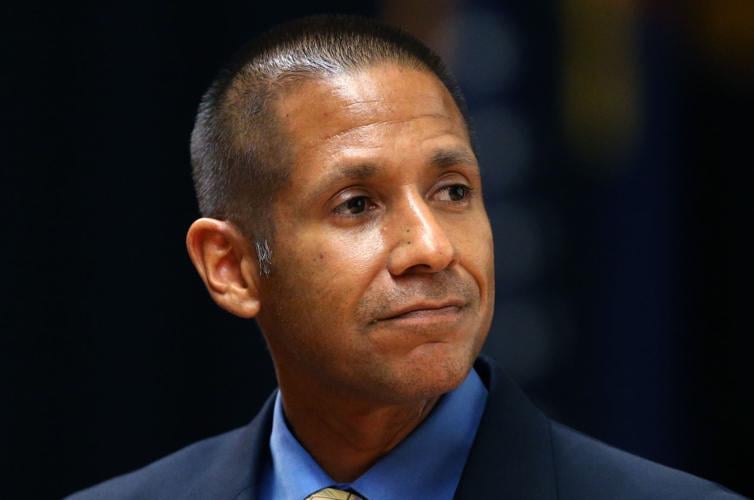The Tucson Unified School District has filed public records requests with nearly 100 local charter schools seeking student directory information to try to woo kids and parents into attending TUSD.
But the move has some charters schools and parents spooked about student data privacy.
TUSD, like most public school districts in Arizona, is in a fierce competition for students with the ever-growing charter school sector. In the past decade, Tucson’s largest school district has lost roughly 12,000 students, while dozens of charter schools have popped up inside the district’s boundaries, with more moving in every year.
Students bring state funding with them, and TUSD’s declining enrollment has caused severe budget problems. The district is currently facing an estimated budget shortfall of between $4.5 million and $6 million due to enrollment declining faster than expected this year.
The information obtained through the records requests will be used to promote TUSD to families living within its boundaries who are instead going to charter schools, said Superintendent Gabriel Trujillo, noting that the district has received countless similar requests from charter schools looking to lure students.
“I think this is our year to really hit hard and try to get as many kids back into the district as we can,” Trujillo said.
But Teresa Rodriguez, the lead teacher at Highland Free School, a small, K-6 charter in midtown Tucson, said the request felt “icky.”
She said the school had never received anything like TUSD’s request and it didn’t realize that third parties — be they people, school districts or corporations — could request directory information, which is allowed under federal law. This includes students’ names, addresses, telephone numbers, date and place of birth, honors, awards, and dates of attendance.
More importantly, most parents don’t realize that information is available for review, she said.
“We were uneasy about the fact that parents didn’t know that kids information could be let out. I mean, birthdays and birth locations — that’s huge. Those are things used for identity fraud,” she said.
After the school received the records request from TUSD, which only sought out student names, addresses and phone numbers, they asked parents if they wanted to opt out of providing that information, as allowed under the federal Family Educational Rights and Privacy Act (FERPA).
Every single parent, except one that they haven’t been able to get a hold of, opted out, she said. However, it’s unclear if parents can opt out after the request was filed.
Under FERPA, schools must tell parents and students about directory information and allow them a reasonable amount of time to request that the school not disclose directory information about them.
Dan Barr, an attorney with Perkins Coie who specializes in First Amendment law and public records, said parents have a right to opt out of providing information. Whether they can do it after the fact is more of a gray area.
“It doesn’t strike me as kosher. But at the same time, is there some privacy reason for this,” he said.
Barr said the key to being on the safe side of the law is consistency. If schools ask parents if they want to opt out every time they receive a public records request, that might be OK.
If they only ask for certain public records requests — say from competing school districts — that’s probably not.
Rodriguez said that, like other schools, Highland Free School asks parents if they would like to opt out of allowing their child’s names to be used in the media or on social media.
But they’ve never specifically told parents that third parties could request wide-ranging directory information or asked if they wanted to opt out.
In the future, she said, Highland will send specific opt-out forms at the beginning of the year.
Lucas Lowe, a parent with two kids at Highland, said he and his wife chose the charter because it’s different than an ordinary public school. The school doesn’t emphasize standardized test grades and it has goats on campus, for example.
93 charter schools
As a relatively private person, Lowe said he’s careful about information pertaining to his kids, and was a little unnerved by the long list of data points TUSD or anyone else could receive.
“I’m glad I opted out because I don’t want to even deal with a phone call or a mailer from them. It saves them some money from having to print another mailer,” he said.
Trujillo said the public records request, which was sent to all 93 charter schools operating in TUSD boundaries, is part of a two-pronged approach to attract and retain students.
The retention part of the plan will focus on students who are about to graduate from preschool, elementary, or middle school — the most frequent time students leave the district for charters.
“We’re not only targeting the customers that are currently not choosing Tucson Unified, we also can’t ignore the battle of the customers we already have in convincing them to continue with us,” he said.
“Key grade levels”
Those incoming kindergartners, sixth-graders and high school freshmen will also be targets in TUSD’s new marketing campaign.
The campaign will include videos promoting TUSD schools, mailers and personal phone calls from school administrators inviting parents and students to visit their next elementary, middle or high school — a first of its kind campaign that Trujillo hopes will shore up enrollment.
“Tucson Unified has never really aimed a strategic and pretty well-orchestrated and implemented recruitment campaign for our own student body, in terms of trying to recruit and retain them for these key grade levels,” he said.
Given budget constraints, Trujillo would like to keep the cost of the marketing campaign under $100,000, making use of existing district resources as much as possible.
And while retention will help, to truly boost TUSD’s numbers, they’re going to have to get serious about the competitive nature of the education business in Arizona, Trujillo said.
Trujillo, who got his start in education at a Phoenix charter school, recalls a more collaborative attitude between district schools and charters. But with the increased school choice and competition, things have changed.
“The times are way different now. It’s definitely a more intense competition,” he said.







